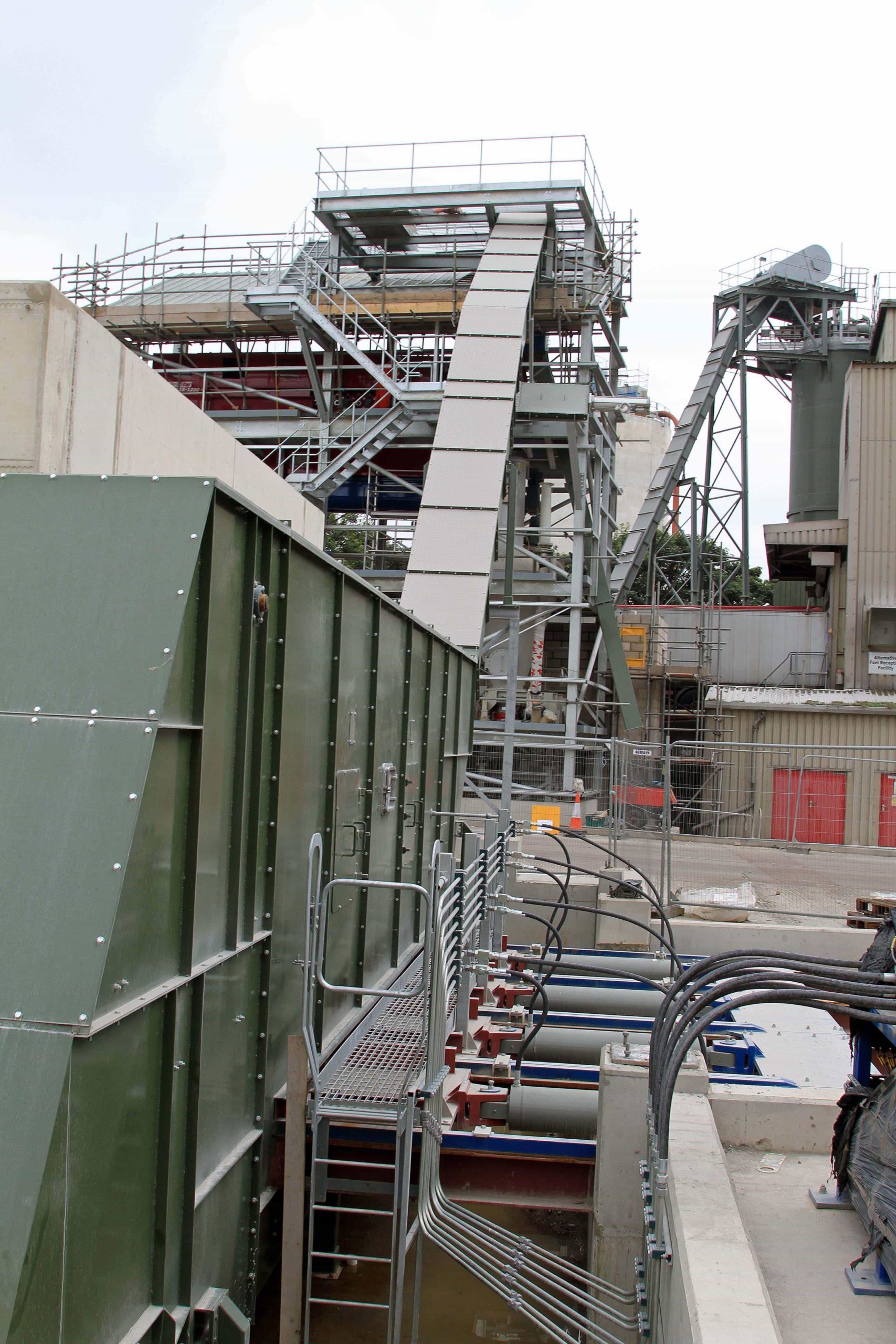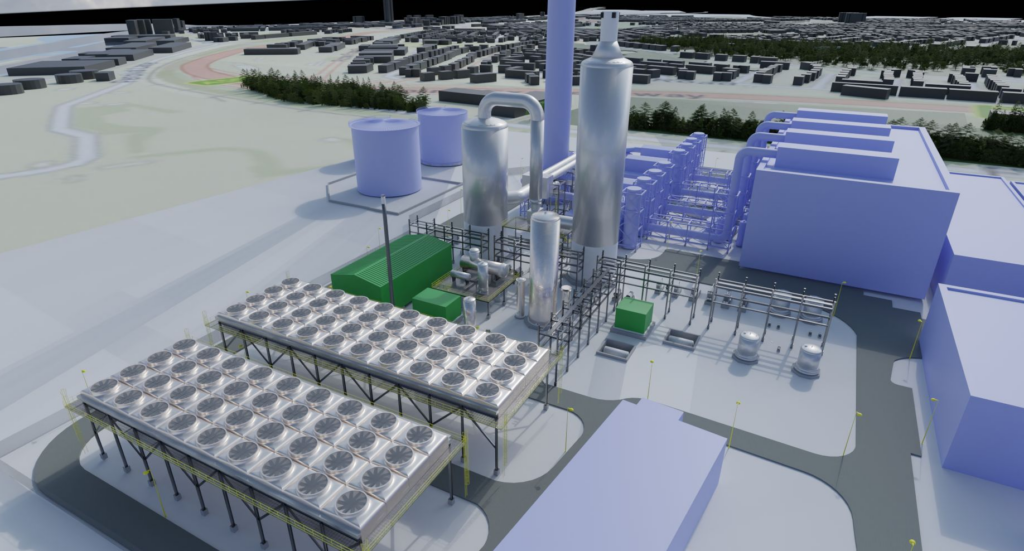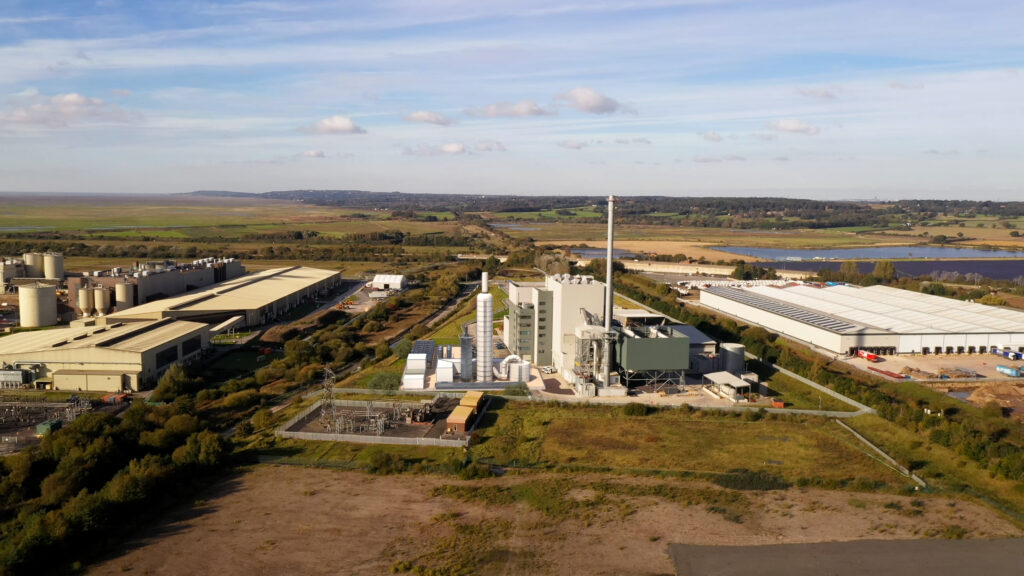The Hope Works cement plant in Derbyshire will take in solid recovered fuel (SRF) from Lincolnshire-based waste firm Mid UK Recycling Ltd as well as councils in the surrounding area.

The new system, which was commissioned by Hope Construction Materials working with bioenergy specialist Saxlund International, will see SRF delivered to each kiln at a rate of 5,000kg per hour.
It means Hope Works will be operating a ‘significantly larger proportion’ of waste-derived fuels, under its company objective in order to replace more than 50% of fossil fuels used at the site.
Like refuse-derived fuel, SRF, is produced by shredding and dehydrating solid waste. However, the material has a greater calorific content which means it is usually the preferred fuel in industrial processes.
The project incorporates a fuel reception and push-floor storage area, reclaim conveyors, and a processing tower with drum magnets and star screen, together with a weighing and pneumatic injection system to the main burners.
Flexibility
Saxlund’s design will also minimise build-up in the pre-heater tower, offering ‘future flexibility’ to allow different types of waste-derived fuels to be used in the future should the suppliers change.
The push-floor mechanism meanwhile enables efficient delivery of the fuel and helps reduce the potential for restrictions or blockages.
Matt Drew, managing director at Saxlund International, said: “This is a flagship project for us. Once fully operational, the new solid waste fuel (SWF) system will run on a 24/7 basis delivering fuel at a rate of up to 5,000kg per hour to each kiln.
“It means Hope Works will soon be operating with a significantly larger proportion of waste-derived fuels, in the process diverting up to 80,000 tonnes of bulk solid waste from landfill each year and representing significant carbon savings to the business.”
Richard Worthington, Hope Construction Materials’ projects engineer, added: “The completion of this multi-million pound project increases the amount of waste-derived fuels we use and forms part of the major investment we announced in January this year to boost efficiency and improve sustainability at Hope Works.”











[…] "Largest" cement plant in the UK converts two kilns to accept waste derived fuel under initiative to reduce fossil fuel dependency […]